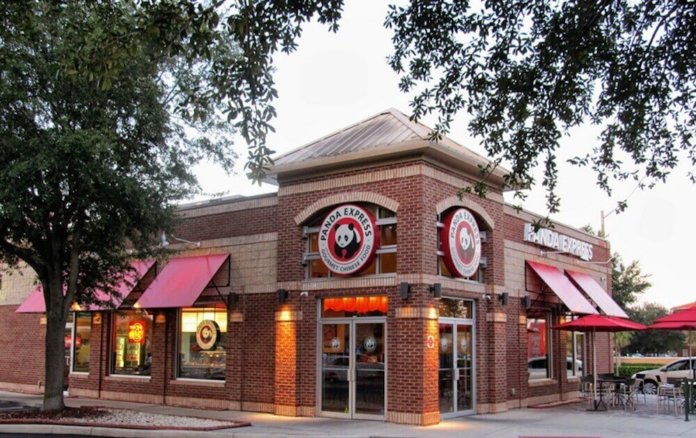
If you think entrepreneurial success has nothing to do with serendipity, Panda Express co-founder Andrew Cherng’s words might surprise you.
“It’s just dumb luck that my cousin leased a restaurant in Hollywood called Ting Ho. He didn’t speak English and turned to me for help. So in 1972 I moved to California and worked seven days a week in the restaurant,” he said in a 2013 interview with Fortune.
Don’t let him fool you though. In building a billion-dollar franchise with his wife and business partner Peggy, Andrew Cherng has demonstrated there is more to this origin story than dumb luck. The Cherngs created one of the world’s most iconic fast casual restaurant franchises, now in its 45th year of operation. What’s more is they managed to do it without taking one penny from outside investors.
The secret to their success isn’t a secret at all. They simply took a common-sense business approach and created a unique management style. In doing so, they revolutionised the restaurant industry.
In the Beginning
Andrew Cherng was born in Yangzhou, China and in 1952, at the age of five, he escaped to Taiwan with his family. In the early 1960s, his family moved to Japan where he found life as a Chinese immigrant extremely difficult. So in 1966, he moved to the United States where he studied mathematics at Baker University in Baldwin, Kansas. Still, life in Baldwin was incredibly lonely for a young man who hadn’t yet learned to speak English.
“We had no phones. A letter would come from my family, and I would read it five times over,” he recounted in a 2010 Bloomberg article. “People left the dorm for Thanksgiving. I didn’t leave. Nobody was left but a few Chinese still in the dorms.”
A few years later Andrew met a 17-year-old fellow math student named Peggy. Peggy Cherng was born in Burma but grew up in Hong Kong, where her family had moved when she was young. Eventually, the couple would move on together to the University of Missouri, where Andrew earned a master’s degree in applied mathematics and Peggy received her PhD in electrical engineering.
Panda is Born
Not long after getting his first taste of the restaurant business at his cousin’s, Andrew Cherng’s entrepreneurial instincts told him to open a Chinese restaurant of his own. While he didn’t have a lot of resources at his disposal, he did have his father, an experienced chef, who had recently come to the United States.
“My dad and I borrowed some money from that same cousin and got an SBA loan, scraping together $60,000. We opened Panda Inn on June 8th, 1973. The whole family – my parents, a brother and sister – all worked at the restaurant for free.”
After Andrew’s father passed away in 1981, Peggy joined the business full time. The first Panda Inn was successful enough for them to open a second location in Glendale in 1982.
Panda Inn Becomes Panda Express
Early on, Andrew Cherng became acquainted with Terry Donahue, the head football coach at UCLA. Terry’s brother Dan was a commercial developer who was working on the new Glendale Galleria.
“They invited me to open a Panda Express in the mall,” Andrew said. “It was October 1983, and the first Panda Express worked out okay, so I opened more restaurants. In 1985 we went from five to nine stores in one year.”
It quickly became clear that Panda Express was a better business model than Panda Inn. The Cherng’s decided to double-down on the new brand and were looking for opportunities to expand.
“In the late 80s and early 90s we began to experiment,” Andrew said. “I talked to Bill Davila, [president of Vons,] who was a customer. I convinced him to put us in Vons supermarkets. Then we began to put Panda Express outside the malls.”
As the company quickly expanded, there was a growing need to organize the entire operation both in terms of product continuity and logistics. To ensure every Panda Express customer had the same taste experience, he had to get consensus from his chefs who each did things their own way.
“I told them, you stay in that kitchen and don’t come out until you agree on one recipe,” he said.
One of the recipes that came out of this process was the favourite Orange Chicken, which is ordered by three out of every four Panda Express customers.
As for logistics, Peggy had previous work experience designing software and knew that computerized systems could really help the business. At her behest, Panda Express became one of the first companies to use computers in day-to-day business operations.
“It was clear to me as an engineer that you need a system. We were one of the first companies to use a computer in the 1980s, which made ordering easier. It could collect information about the most popular items people ordered by networking the stores to the corporate office, so we had more information,” she said.
By the late 1990s, the company had achieved success. Rather than resting on their laurels, however, the Cherngs were determined to take the company even further.
“In 1997 we had 254 stores, and the revenue was $178.7 million. That’s when we set a goal of being a billion-dollar company.”
To reach this goal, Panda Express started opening outlets in previously untapped markets like college campuses. The move was not devoid of risk as Panda Express Senior Vice-President for Marketing Glen Lunde pointed out.
“Growing is easy,” he told Bloomberg. “But it’s doing it right; it’s not turning it into another Taco Bell.”
Leading a Landmark Business Culture
What prevented Panda Express from becoming a soulless corporate entity was Andrew Cherng himself. Over time, Andrew became a devotee of personal betterment guides including Stephen Covey’s Seven Habits of Highly Effective People, Deepak Chopra’s The Seven Spiritual Laws of Success and Don Miguel Ruiz’s Four Agreements.
“Business is a playground,” Andrew said. “Business is where you practice your human skills. It’s where you grow. You have to grow! You grow as a person, and then you will grow in business. That’s how you go forward.”
Cherng encourages all of his employees to take part in Landmark Forums which, according to their website are, “…Designed to bring about positive, permanent shifts in the quality of your life.”
Cherng sees personal betterment and company betterment as inseparable. “…Better service, better execution, better environment. Every one of these things requires a human touch. Every one of these things benefits from Landmark… Forget about return on investment. This is a tremendous overall contribution to society.”
He routinely tells new employees who take the program, “If you quit Panda tomorrow, I still want you to go to Landmark.”
Legacy
With the company’s 50th anniversary just around the corner, it’s fitting to take a step back and look at what they’ve accomplished. When they started in 1973, fast food meant nothing but burgers and fries. Panda Express created a whole new dining niche called “fast-casual.” Ten times larger than their nearest competitor, Panda Express is the undisputed driver of the fast-casual restaurant category.
As Peggy and Andrew reflect on their 45 years of marriage and business, they don’t focus on the dollars and cents.
“After all these years, what I’m most proud of is seeing our people and the business grow,” Peggy said. “We have people who joined us as kitchen chefs and waitresses who are now vice presidents of the company.”
“I am most proud of building an organization where our people are inspired to better their lives,” Andrew added. “Empowering others to better their lives contributes an even greater impact to our communities and beyond.”
Obviously, there’s more to Panda Express’s incredible success story than just dumb luck. That’s just Andrew Cherng being humble.









